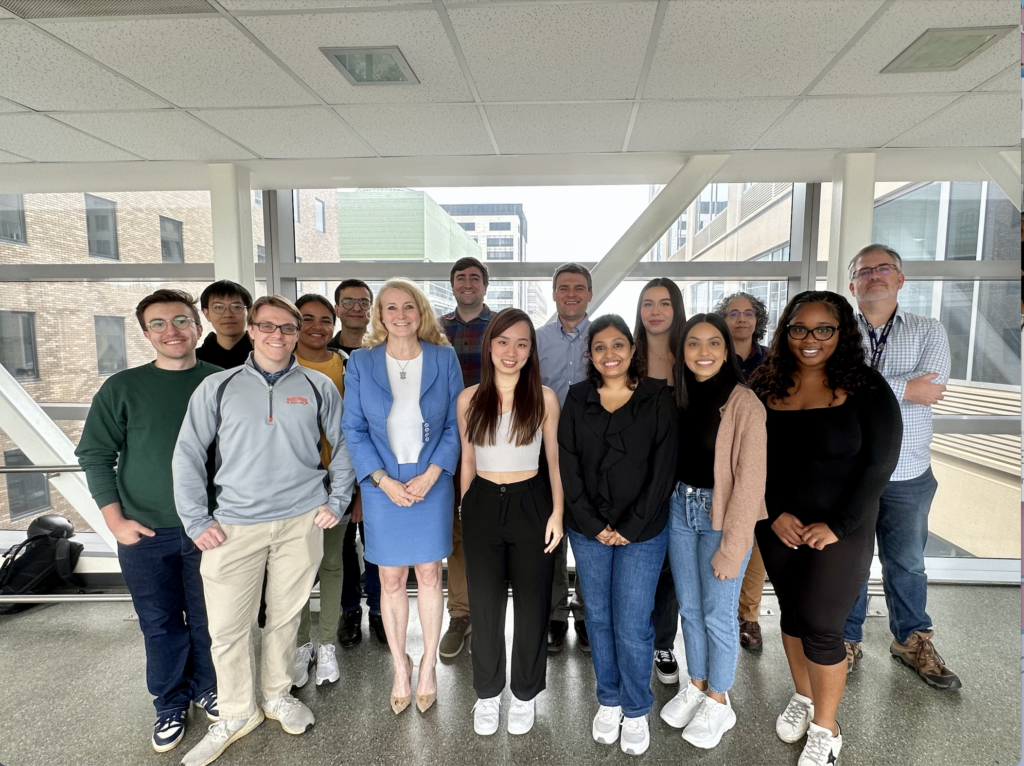
Our laboratory investigates the host immune response to viruses that cause chronic human infections, particularly HIV, hepatitis B virus (HBV), and hepatitis C virus (HCV). HCV infects nearly 200 million people worldwide, resulting in chronic infection in about 75% of cases. We examine the role of the immune response in clearance of HCV upon exposure to this virus by studying responses to HCV from the earliest phases of infection through years following infection in a longitudinal, prospective cohort of people at risk of HCV infection. This allows a comparison of the innate, humoral, and cellular immune responses to infection with clearance versus persistence. Our goal in our HCV research is to identify mechanisms of protective immunity against HCV infection and improve prophylactic HCV vaccine design. We are focused on how the immune system can be used to cure HBV infection and how the adaptive immune response regulates innate immune sensing of HIV, HBV, and HCV.
We are also interested in the mechanisms through which chronic viral infections and tumors evade T cell responses through up-regulation of molecules that inhibit T cell function.
Principal Investigator

Andrea L. Cox
Professor of Medicine and Oncology, Director of Basic Science and Translational Research, Div. Of Infectious Diseases
Dr. Cox earned her Ph.D. studying T cell immunology at The University of Virginia. She subsequently completed an M.D. and then Internal Medicine and Infectious Disease training at Johns Hopkins. She investigates human immune responses to hepatitis C virus (HCV) and to vaccines against hepatitis B virus (HBV), SARS-CoV-2, dengue virus, and respiratory syncytial virus. She is the PI of a U19 investigating mechanisms of spontaneous HCV control to direct rational development of an effective HCV vaccine. She was the principal investigator on the first prophylactic HCV vaccine trial implemented in an at-risk population and the lead immunologist on a trial of HBV vaccines in people living with HIV.
Outside the lab, she enjoys cooking, speaking French, and spending time with family.
Email: [email protected]
Lab Members
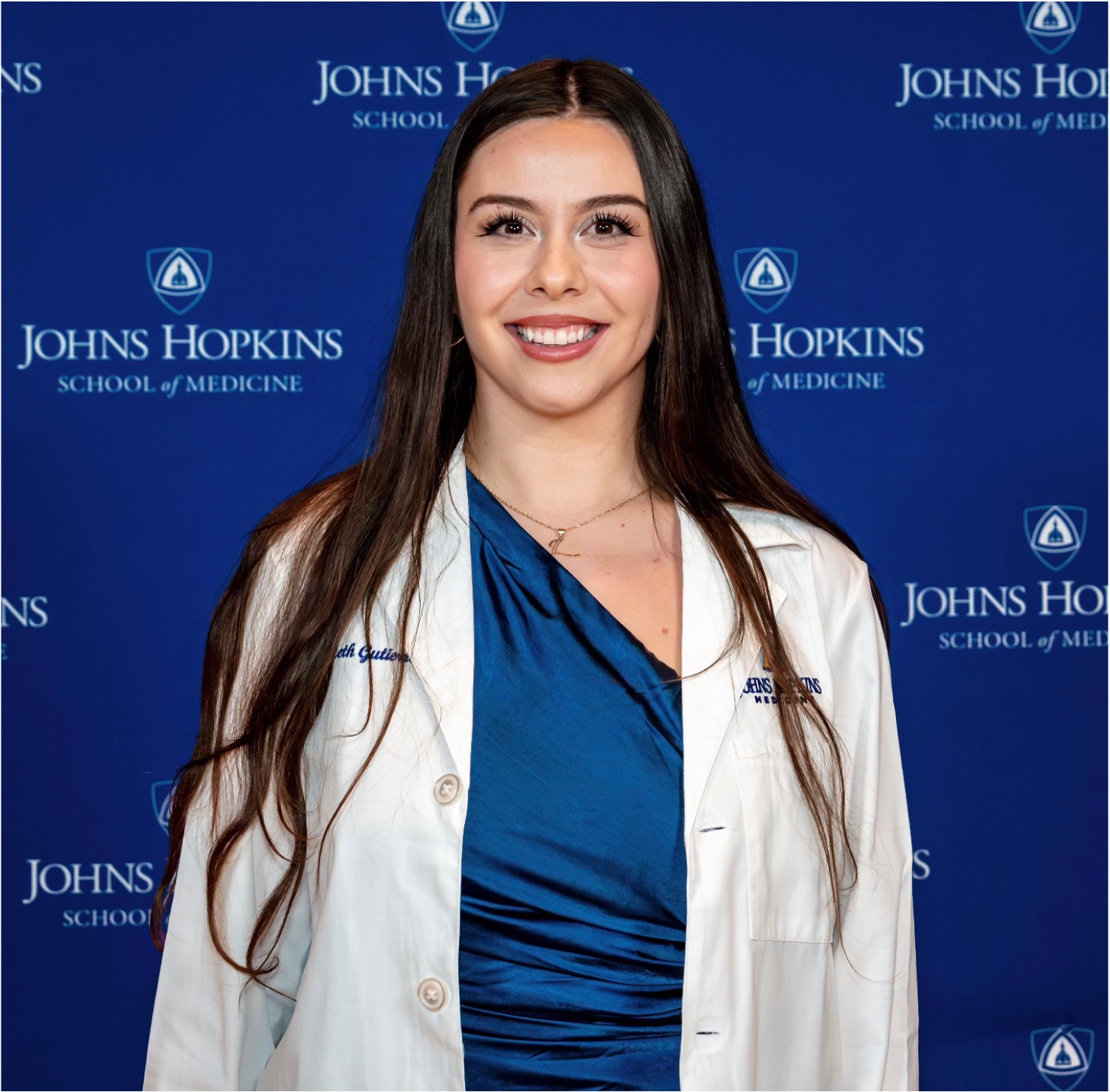
Lizeth Gutierrez
Role: PhD Student in the Cellular and Molecular Medicine Program
Research Interest: Lizeth’s research focuses on understanding vaccine-induced immune responses in vulnerable groups, such as pregnant women, people living in dengue endemic areas, and people who inject drugs. Her projects have explored both the broad immune system and antigen-specific T cell responses in these contexts. She looks forward to expanding her work to mouse models.
Hobbies: Outside of lab, Lizeth enjoys going to the gym, dancing, watching scary shows and movies, and exploring new restaurants in new cities!
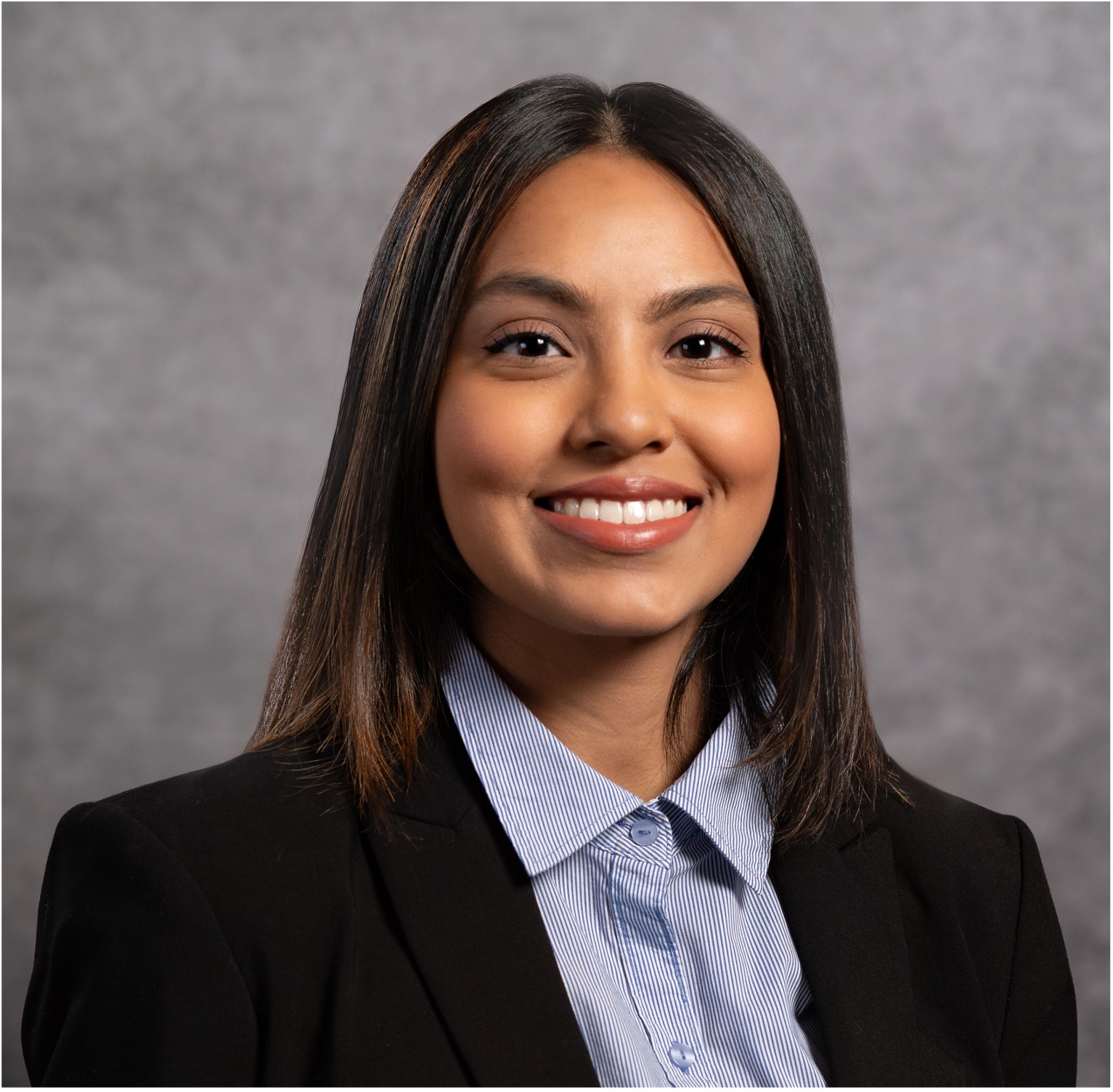
Nirvani Jairam
Role: PhD Student in Cellular and Molecular Medicine
Research Interest: Nirvani’s research focuses on analyzing T-cell response to RSV vaccines, specifically in immunocompromised individuals. In addition, she investigates how non-neutralizing antibodies modulate innate immune responses to RSV. By studying these immune pathways, she hopes to improve therapeutic strategies for those with compromised immune systems and enhance public health outcomes.
Hobbies: Outside of lab, Nirvani enjoys playing the violin, attending barre classes, and going to coffee shops.
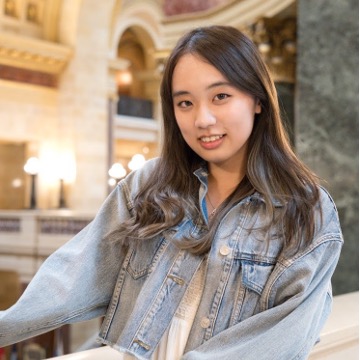
Jenny Lee
Role: PhD Student in Molecular Microbiology and Immunology
Research Interest: Jenny’s research focuses on understanding the functional impairments of SARS-CoV-2-specific CD8+ T cells, particularly their ability to produce cytokine such as Interferon gamma. She is also studying the impact of different adjuvants in HBV vaccines on immune responses in immunocompromised people. She is passionate about understanding immune responses in the context of viral infections and vaccination.
Hobbies: Outside of lab, Jenny enjoys cooking, exploring photography, and have recently started practicing pilates.
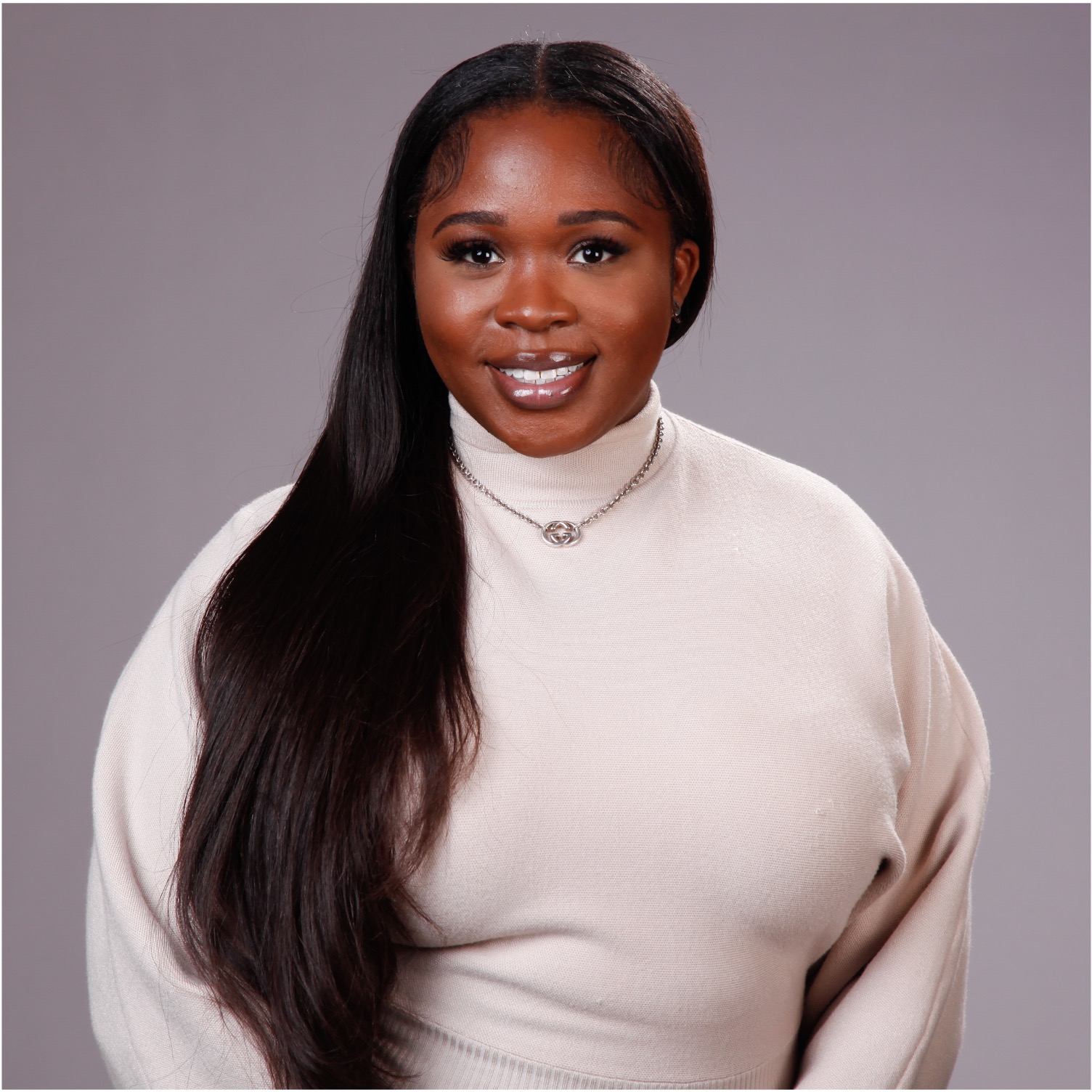
Mattlyn Young
Role: PhD Student in the Cellular and Molecular Medicine Program
Research Interest: Mattlyn’s research focuses on understanding the role of immune cells in acute to Long COVID; specifically, how the SARS-CoV-2 virus induces neutrophil degranulation and myeloid derived
suppressor cell differentiation characterization associated with acute to severe COVID-19 in human using an in vitro murine model system. Mattlyn is also passionate about research efforts aimed to improve the overall health of
underrepresented minorities and underserved communities.
Hobbies: Outside of lab, Mattlyn loves attending hot yoga classes, riding my peloton, cooking, and going out to upscale restaurants with my friends.

Yufeng Liu
Role: PhD Student in the Cellular and Molecular Medicine Program
Research Interest: Yufeng’s research focuses on understanding the different pattern of immune responses among vaccine recipients, specifically in the phenotype of antigen specific CD8+ T cells. In addition, he also uses cutting-edge sequencing methods to investigate the viral evolution under the immune stress. He is passionate about understanding the interactions between the immune system and viruses in the context of infection and vaccination
Hobbies: Outside of lab, Yufeng enjoys playing badminton, exploring restaurants, and riding thrilling rollercoasters.
Alumni
Katerina Roznik, Ph.D., 2021–2024 PhD student. Currently consultant
Georgia Stavrakis, Ph.D., 2020–2024 PhD student. Currently post-doctoral fellow, University of Montreal
Tihitina Aytenfisu, 2021–2023 postbaccalaureate Doctoral Diversity Program. Currently MD-Ph.D. student, Johns Hopkins University School of Medicine
Lee-Yang (Leon) Hsieh, Ph.D., 2020–2023 PhD student. Currently post-doctoral fellow, New York University
Elise Thompson, M.Sc., 2020–2021 Master’s student. Currently Medical Student at Oregon Health & Science University
Alexis Figueroa, 2018–2020 postbaccalaureate Doctoral Diversity Program. Currently MD-Ph.D. student, Johns Hopkins University School of Medicine
Marni Nishimoto, Ph.D., 2018–2023 PhD student. Currently Research Scientist, Janux Therapeutics
Kimberly Rousseau, Ph.D., 2017–2022 PhD student. Currently Associate Science Writer/Editor, IQ Solutions
Katherine Cascino, Ph.D., 2017–2022 PhD student. Currently Technology Development Associate, Johns Hopkins Technology Ventures
Michelle Colbert, M.D., 2016–2018 Doctoral Diversity Program postbaccalaureate scholar. Currently Mayo Clinic dermatology resident
Mary Soliman, Ph.D., 2015–2020 PhD student. Currently Senior Health Policy Analyst II, American Medical Association
Sho Sugawara, Ph.D., 2015–2019 PhD student. Currently post-doctoral fellow at Duke University
Valerie Kinchen, Ph.D., 2015–2019 PhD student. Currently consultant, Envision Pharma Group
Laura Aisenberg, M.D., Ph.D., 2014–2019 PhD student. Currently pediatric hospitalist, Children’s Hospital of Philadelphia
Jean Clement, M.D., M.Sc., 2014–2015 Master’s student. Currently Hematology/Oncology Fellow, University of Virginia
Zachary Freeman, D.V.M., Ph.D., 2013–2016 PhD student. Currently Assistant Professor, Unit for Laboratory Animal Medicine, University of Michigan, Ann Arbor, MI
Rebecca Terilli, Ph.D., 2011–2016 PhD student. Currently Assistant Professor of Molecular and Comparative Pathobiology, The Johns Hopkins University School of Medicine
Benjamin Park, M.D., Ph.D., 2011–2015 PhD student. Currently Resident, Interventional Radiology, Stanford University
Chiamaka Kalu, M.S., 2010–2011 post-baccalaureate. Currently High School Dean of Students, Paul Public Charter School
Kelly Burke, M.D., Ph.D., 2008–2014 PhD student. Currently Instructor in Medicine, Dana-Farber Cancer Institute, Harvard University
Selected Publications
- Page K, Melia MT, Veenhuis RT, Winter M, Rousseau KE, Massaccesi G, Osburn, WO, Forman M, Thomas E, Thornton K, Wagner K, Vassilev V, Lin L, Lum PJ, Giudice LC, Stein E, Asher A, Chang S, Gorman R, Ghany MG, Liang TJ, Wierzbicki MR, Scarselli E, Nicosia A, Folgori A, Capone S, Cox AL. Randomized Trial of a Vaccine Regimen to Prevent Chronic HCV Infection. New England Journal of Medicine. 2021 Feb 11;384(6):541-549.
- Thompson E, Cascino K, Ordonez A, Zhou W, Vaghasia A, Hamacher-Brady A, Brady N, Sun IH, Wang R, Rosenberg A, Delanoy M, Rothman RE, Fenstermacher K, Sauer L, Shaw-Saliba K, Bloch EM, Redd A, Tobian AA, Horton M, Smith K, Pekosz A, D’Alessio F, Yegnasubramanian S, Ji H, Powell JD, Cox AL. Metabolic programs define dysfunctional immune responses in severe COVID-19 patients. 2021 Cell Reports 2021 Mar 16;34(11):108863.
- Karaba AH, Zhou W, Hsieh LL, Figueroa A, Massaccesi G, Rothman RE, Fenstermacher KZJ, Sauer L, Shaw-Saliba K, Blair PW, Robinson ML, Leung S, Wesson R, Alachkar N, El-Diwany R, Ji H, Cox AL. Differential Cytokine Signatures of SARS-CoV-2 and Influenza Infection Highlight Key Differences in Pathobiology, Clinical Infectious Diseases, 2022 Jan 29;74(2):254-262.95.
- Aisenberg LK, Rousseau KE, Cascino K, Massaccesi G, Aisenberg WH, Luo W, Muthumani K, Weiner DB, Whitehead SS, Chattergoon MA, Durbin AP, Cox AL. Cross-reactive antibodies facilitate innate sensing of dengue and Zika viruses. JCI Insight. 2022 Jun 22;7(12):e151782.
- Thompson EA, Ngecu W, Stoddart L, Johnston TS, Chang A, Cascino K, Alejo JL, Abedon AT, Samaha H, Rouphael N, Tobian AA, Segev DL, Werbel WA, Karaba AH, Blankson JN, Cox AL. Heterologous versus homologous boosting regimens elicit qualitatively distinct, BA.5-cross reactive T cells in transplant recipients. JCI Insight. 2023 May 22;8(10):e168470.
- Roznik K, Xue J, Stavrakis G, Johnston TS, Kalluri D, Ohsie R, Qin C, McAteer J, Segev DL, Das M, Werbel WA, Karaba AH, Thompson EA, and Cox AL. COVID-19 vaccination induces distinct T-cell responses in pediatric solid organ transplant recipients and immunocompetent children., NPJ Vaccines, 2024 Apr 5;9(1):73.
- Hsieh LH, Looney M, Figueroa Alexis, Massaccesi G, Stavrakis G, Anaya EU, D’Alessio FR, Ordonez AA, Pekosz AS, DeFilippis VR, Karakousis PC, Karaba AH, Cox AL. Bystander monocytic cells drive infection-independent NLRP3 inflammasome response 1 to SARS-CoV-2, mBio 0:e00810-24.
- Roznik K, Andargie TE, Johnston TS, Gordon O, Wang Y, Akindele NP, Persaud D, Antar AAR, Manabe YC, Zhou W, Ji H, Agbor-Enoh S, Karaba AH, Thompson EA, Cox AL. Emergency myelopoiesis distinguishes multisystem inflammatory syndrome in children from pediatric severe COVID-19 Journal of Infectious Diseases, 2024 Aug 16;230(2):e305-e317.
- Hsieh L, Jairam NP, Thompson EA, Roznik K, Figueroa A, Aytenfisu T, Zhou W, Gour N, Chao K-H, Milstone AM, Egbert E, D’Alessio F, Karakousis PC, Ordoñez A, Scully EP, Pekosz A, Karaba AH, Cox AL. SARS-CoV-2 induces neutrophil degranulation and myeloid derived suppressor cell differentiation, which correlates with severe COVID-19, Science Translational Medicine, 2025 May 21;17(799):eadn7527.

